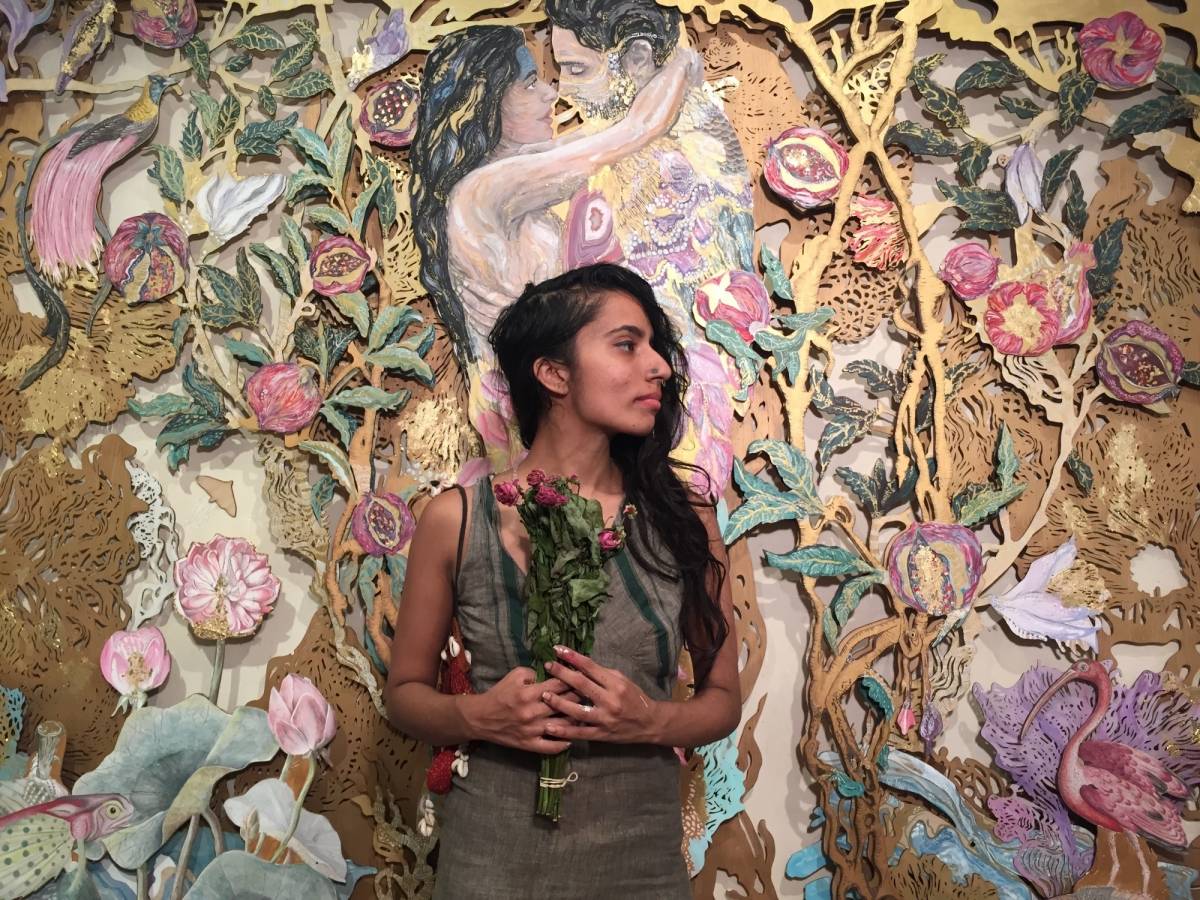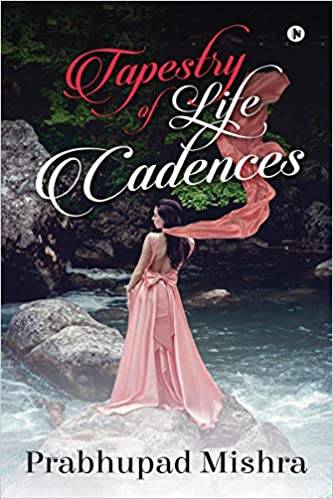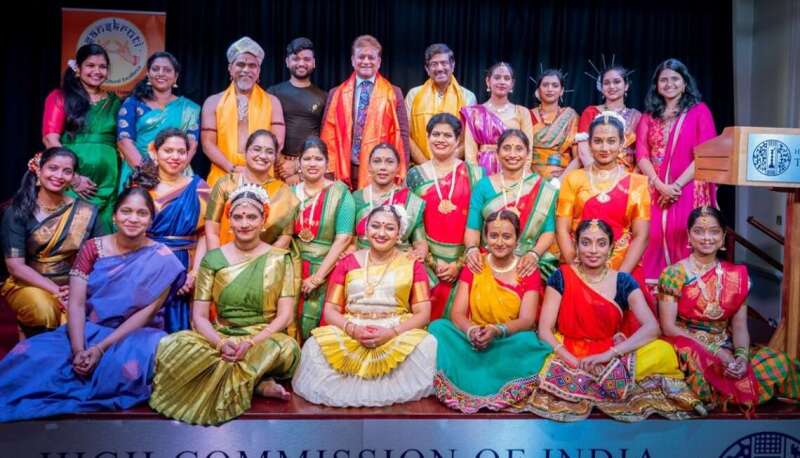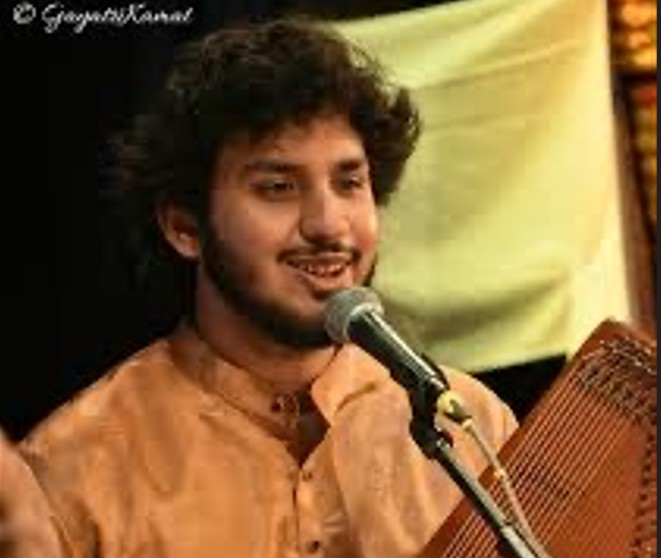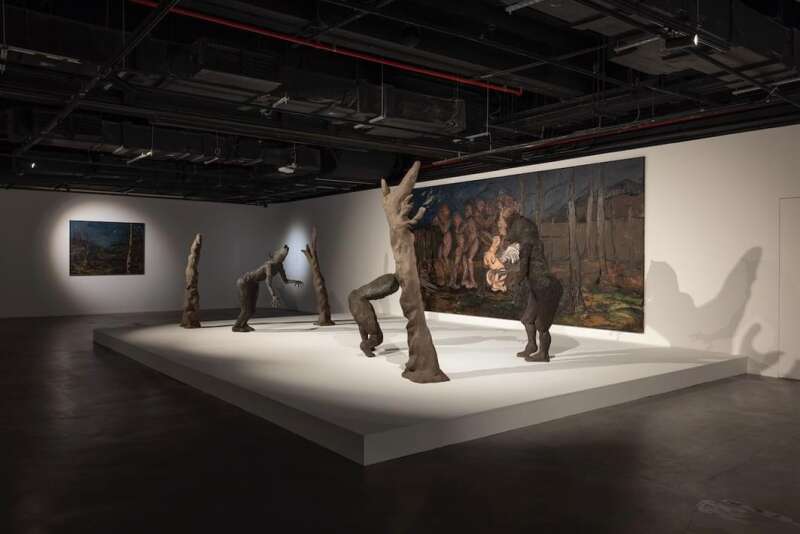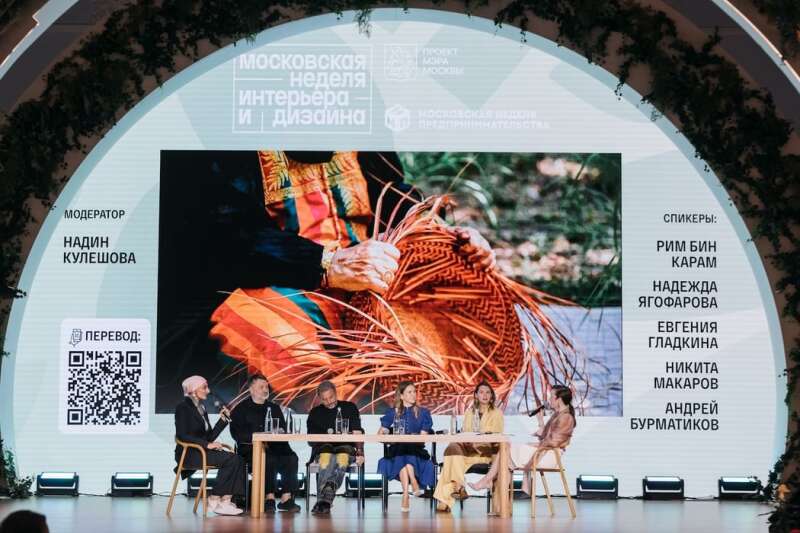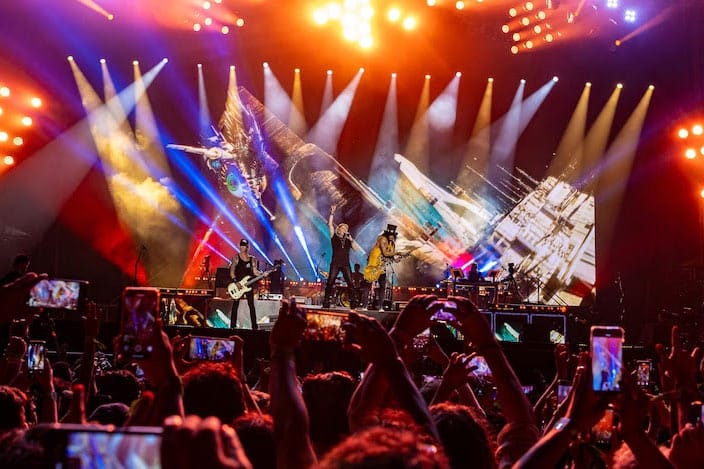Suleman, in whose practice magical realism, femininity, art driven for social change and cutting edge technology finds a meeting point, started illustrating for a book at the age of 16…writes Sukant Deepak.
Believing that the most incredible thing about the street is the fact that it is an activation of public life, contemporary artist Shilo Shiv Suleman, founder of ‘The Fearless Collective’ that engages with gender issues and art for social change says that in the post-pandemic world when our lives have become isolated and separations pronounced — between classes and people with different political ideologies — those on the margins have become even more marginalized.
“I think what happens when we get on to the streets is that there’s a way that all of those binaries and boundaries disappear and we find each other. In the same way that in families, sitting around a dinner table you can’t help but explore differences, jump across chasms and find each other; on the streets, when you are sitting at a chai shop or travelling in a train, there’s a way that all binaries disappear. So I think that (street) is really a space where we come closer to a sense of union with ourselves, culture, and the people around us. Especially given that right now there is so much separation in the world, the street is really a space of union,” says the artist who is part of KNMA’s new series – ‘Art Meets Street’. “It is exciting that KNMA has recognised the possibilities that street art offers and is providing a platform to highlight it through the ‘Art Meets Street’ digital series,” she says.

Suleman, in whose practice magical realism, femininity, art driven for social change and cutting edge technology finds a meeting point, started illustrating for a book at the age of 16.
Exploring different themes through illustrations and installation art, the artist whose show ‘Reincarnate: We meet here in the Afterlife’ – encompassing paintings, sculptures, wearable art and sculptures was recently shown in Mumbai, delves into shadow lines and talks about mortality. “Most definitely it was because of pandemic this year it really felt like 2020 was a death and a resurrection. I started to think about how many times our worlds have ended and begun again. So, the ‘Reincarnate’ looks at mortality and ideas of the afterlife, but again from the space of great luminosity. From hope and mystery, from being able to embrace mystery. I feel while this year has brought so much chaos and overwhelming grief, we also need to be able to hold mystery and understand how magical it is to be able to live with this kind of intensity.”
Adding that the foundation of the work looked at the apocalypse myths, end of the world stories and how the world ends and begins again, she says that for her lockdown was quite awful. “I was completely locked away in almost like a Rapunzel tower for three months. While I did not paint very much, I wrote poetry every day, there were also letters to the apocalypse, to qayamat every day. When the second the lockdown opened I began a three city national tour working with people on the margins. ‘Reincarnate’ definitely came as my own reincarnation to come back to life after lockdown and choose to live again in a beautiful glorious way.”
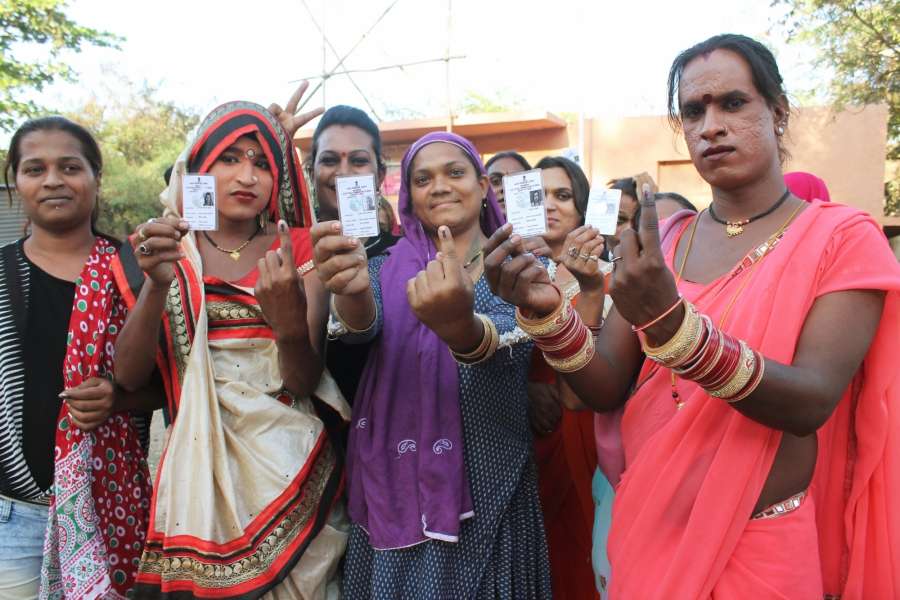
Leading ‘The Fearless Collective’ to work not just in different Indian cities but also with displaced Syrian community in Beirut, queer activists in South Africa, transgender activists in Pakistan, and indigenous communities in Brazil, Suleman, who recently held a three-city tour in Lucknow, Delhi and Jaipur to create street art says that her biggest takeaway when they move from one space to another is to observe how the emotional landscapes are always the same, regardless of our individual experiences. “We all feel fear, loneliness, love, joy, lust, desire and longing. Interacting with the most invisible communities, there is a realisation that there are no separations.”

For someone who believes “sometimes, people don’t have a choice but to resist…”, she adds, that it is quite trendy to talk about resistance, especially now. That being an activist can be something that is quick casual which you drop in and out of. “However, every time I spend with the people who are actually on the front lines, just women you know, you realise that resistance is not really a choice, it is not something that is glamorous. It is choice-less who are made invisible and have no choice but to be able to stand on the street. It is not comfortable and yet even in those moments you see the capacity of beauty. There is this kind of space in between struggle and liberation which is one of tremendous freedom.”

Talk to her about how street art has evolved in small Indian towns, and the artist says that ancient India had no gallery spaces or exclusive spaces just for art, and beauty was embedded everywhere — in weapons, clothes, food, language, the dots of handwriting, love letters, poetry temples and mosques. “I believe that when we go back out to the streets along with the rangolis, the Ganesh visarjans and beautiful processions, we really claim this for beauty. Also, particularly as a woman, I think the streets is a place where a woman’s body is often put on billboards to sell something, but very rarely do we get access to streets and public spaces in the same way the men do. So, at the foundation what we do at fearless is about reclaiming public spaces through our bodies.”
Also Read-Artistic exploration of the symphony of nature
Read More-Healing Our Earth organises ‘COVID Special’ Program


